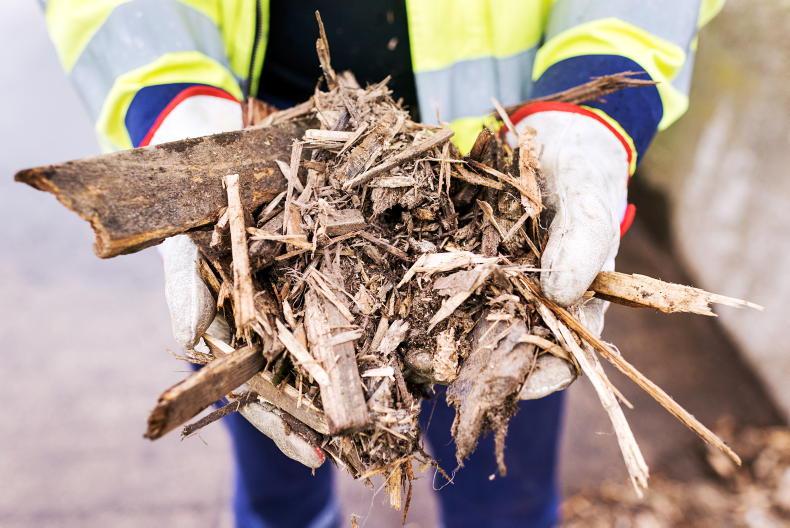Plans for a biomass power station in Killala, Mayo, which will use almost 200,000t of imported woodchips, are set to be revived after Mayo County Council granted approval for a revised version of the plant.
First approved in 2011, the €200m biomass plant was intended to run on up to 380,000t of imported woodchips from America to produce 50MWh of electricity. The then Taoiseach Enda Kenny launched the project in June 2015, and the plant was due to be up and running in 2017.
However, just one year into construction, operations had to be suspended due to a funding shortage.
The company entered liquidation in 2016 due to what the developers called “unavoidable circumstances”.
In 2018, the company engaged the global management and consulting firm Nexus PMG to recommence development of the project.
After significant revisions to the plans, a new application was lodged last year, which has just been approved.
Imports
The developers say that the new facility will now use 40% locally sourced biomass, such as roundwood logs from forestry thinning operations, with the other 60% made up of imported woodchips.
The plant will be supplied with 38.6t of biomass per hour, or 324,475t per year based on 8,400 operating hours.
Approximately 194,700t of imported chips will be transported by ship to Killybegs port, Donegal, which is located two hours and 15 minutes north of the site.
Shipments of 30,000t will arrive at the port every three months, while shipments of 4,000-5,000t could arrive every two weeks. Potential fuels include eucalyptus chips, fruit tree (apricot, grape, olive) chips, pine chips, shea pellets, and sunflower husks.
From the port, the chips will be loaded into walking floor trailers and trucked to the site. The developers say that biomass supplied to the plant will meet all criteria under a “chain of custody” for sustainability and certification requirements.
From there, the biomass will be burned to produce steam to drive a turbine and generator to produce up to 48.56 MWh of electricity. The developers say that the plant will commence operation in 2025, creating 26 permanent jobs.






 This is a subscriber-only article
This is a subscriber-only article










SHARING OPTIONS: